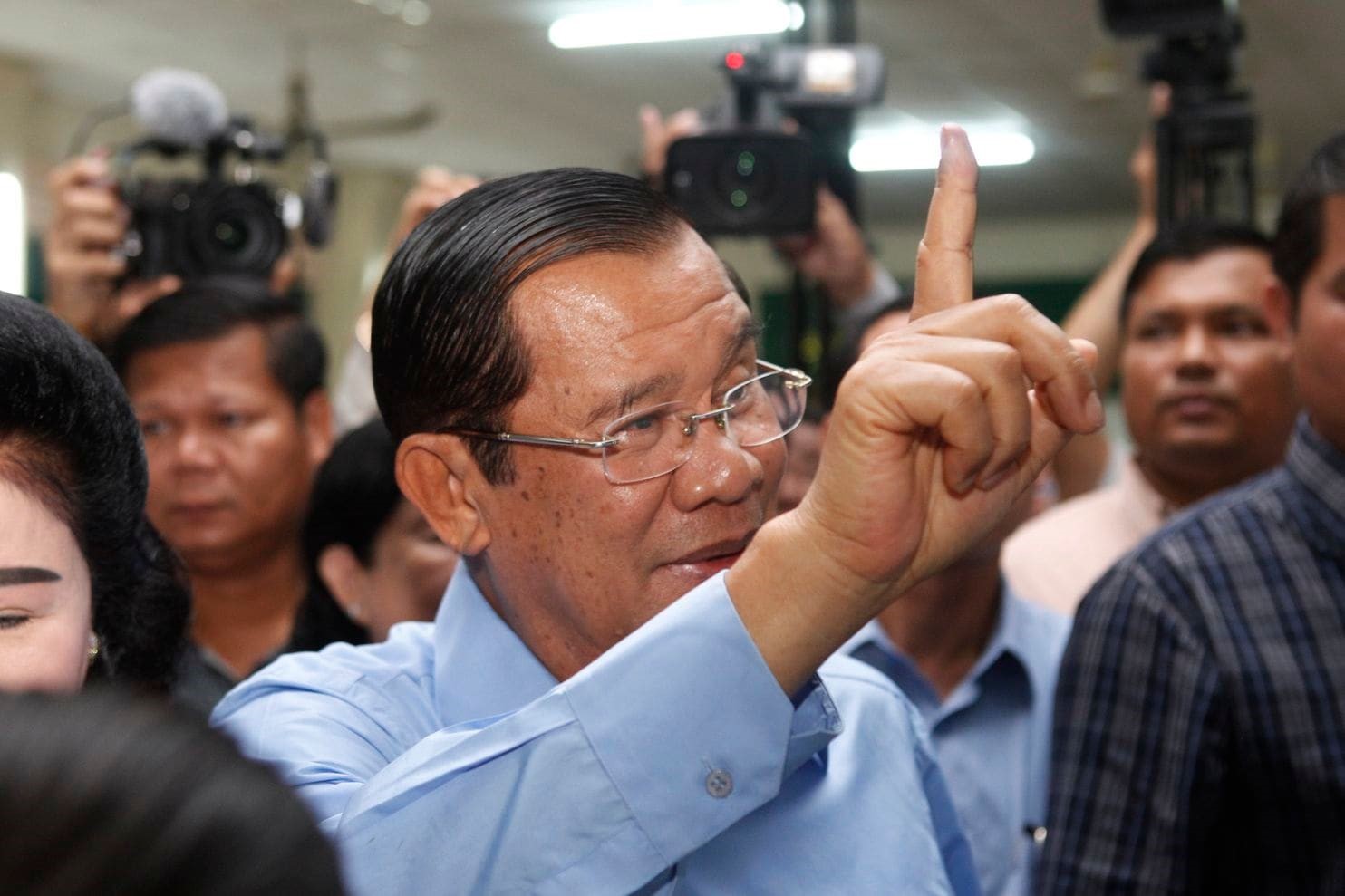Woe betide those without inky fingers!
As anticipated, Prime Minister Hun Sen and his Cambodian People’s Party (CPP) won the national elections of July 29. Those who boycotted these elections will now face discrimination. As China’s influence in Cambodia continues to grow, the West is turning a blind eye despite the farcical nature of the election.
Even before the official election result was due to be revealed in mid-August, the Cambodian autocrat, who has been in power for 33 years, announced that his party had won all 125 seats in parliament. Once the Cambodia National Rescue Party (CNRP), the only serious opposition party, was banned in the fall of 2017 because it had allegedly committed treason, victory for the CPP was assured long before the election itself.
And while the opposition was being suppressed, the freedom of the Cambodian media was also restricted on a massive scale. The daily English-language newspaper Cambodia Daily was forced to shut down in September 2017 due to supposed tax offenses, while the newspaper The Phnom Penh Post was taken over by a Malaysian investor closely associated with the government. Any radio stations that were critical of the regime were shut down too.
As the regime was keen to preserve a veneer of legitimacy, however, a whole range of new parties were permitted to register and repressive measures were used to ensure a respectably high turnout. The suppression of media freedom meant that the opposition’s calls for an election boycott went largely unheard. Anybody who did call for a boycott was also threatened with legal consequences for obstructing the election, and those unable to present an ink-stained finger after election day – after filling in their ballot paper, each voter dipped their forefinger in permanent ink – are facing discrimination. For instance, notarizations required for a range of transactions may be refused on spurious grounds. Both civil servants and factory workers face discrimination at work or even losing their jobs if they are unable to prove they took part in the election.
The farcical nature of the election has been obvious for a long time, yet it has not attracted much interest internationally. The US and the EU did take some measures beforehand, such as making visa requirements slightly stricter for several government officials, shelving a few development projects and threatening further sanctions. They also decided not to send any election observers. However, none of this has affected the regime in the least. In the past year, Hun Sen publicly declared that it would not matter to him whether or not the election result is recognized by the international community. Following the elections, he urged the election authority to announce his victory quickly so that he would be able to form a new government as early as August and appear before the next United Nations General Assembly, freshly legitimized. “I will go to the United Nations to deliver a speech and show that we held our elections as a sovereign state that does not need approval from anybody.”
However, Hen Sen does rely on one strong ally in China, which sent a host of uncritical election observers into Cambodia and is very interested in further increasing its influence in this Mekong country. China’s huge investments in Cambodia, as part of the Belt and Road Initiative (BRI) have made the country far less dependent on development aid from the West. The only measures the EU and the US could take that would really hurt Cambodia and its Chinese investors would be suspending trade preferences. After all, they are the leading consumers of Cambodian textile exports. The Cambodian clothing industry employs around one million people and makes up about 80% of exports. It is therefore no wonder that opponents of the regime who dare to call for the EU to implement a trade boycott are now facing accusations of treason. However, the EU does not appear very eager to consider imposing any serious sanctions. Any severe criticism of the regime is not to be expected from the current US administration either, as the upholding of human rights and protection of media freedom are known to carry little importance under President Trump. Europe and the US are currently preoccupied with their waning influence in Asia. So unless Hun Sen carries out a large-scale massacre, both powers will quickly return to business as usual, in spite of the farcical nature of the election, to avoid voluntarily ceding the field to China.


